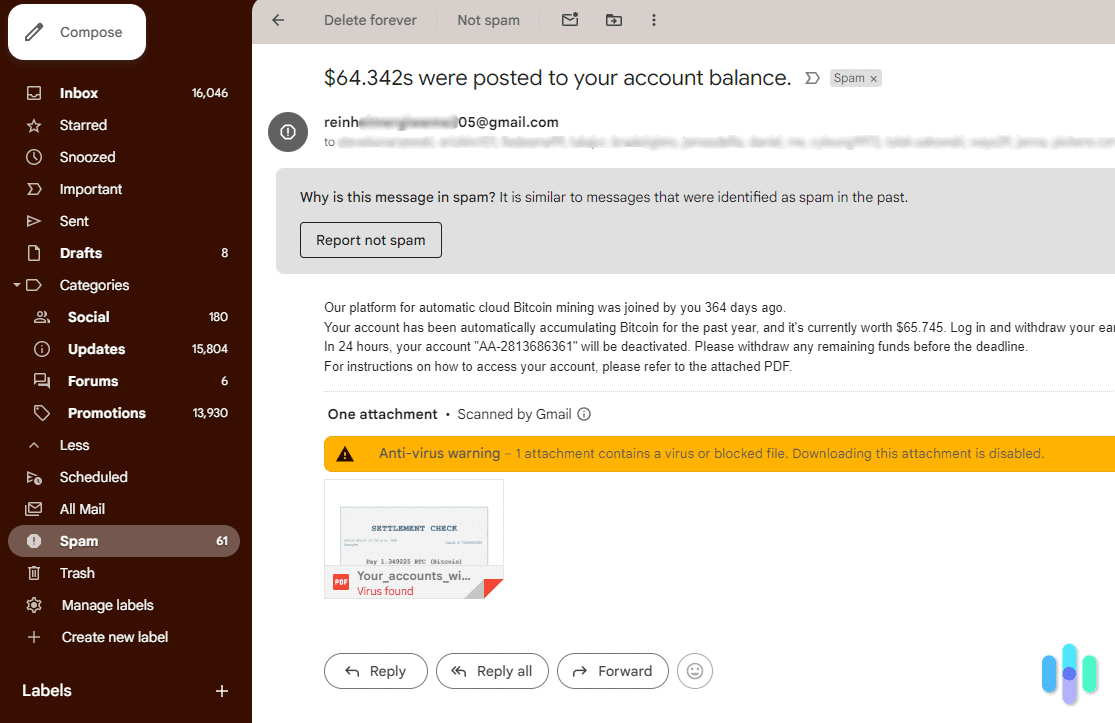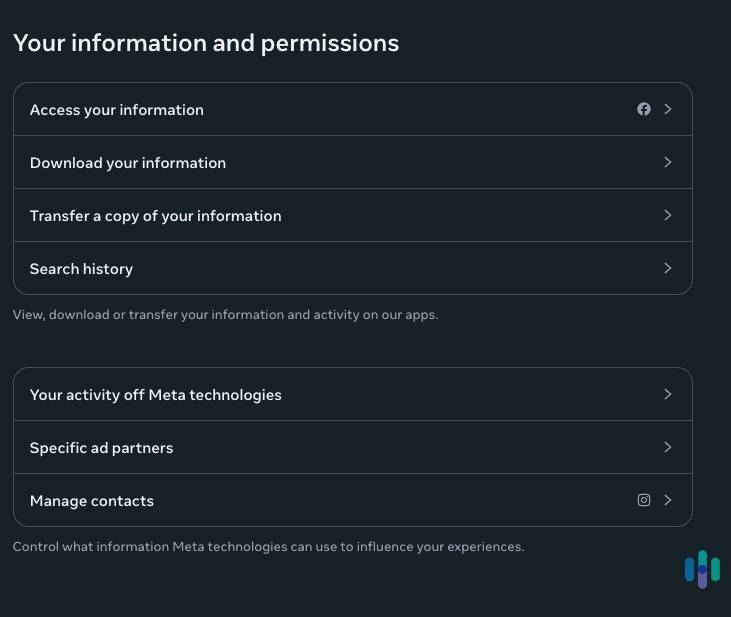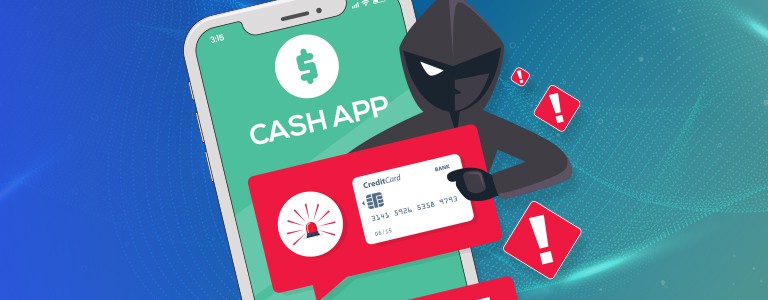Strangers on the internet knowing your full name and home address may not sound like a big deal, but you shouldn’t underestimate this. All it takes to turn your life upside down is one scammer or stalker having this information. They could use it to collect even more private information on you, impersonate you when dealing with law enforcement, or target you with phishing messages.
Fortunately, there are things you can do to prevent things from escalating. Our 15-minute guide will show you what threats you could be exposed to, and what steps you can take to protect your data.
Pro Tip: Your name and home address are all that’s needed to find a lot of personal information about you on a data broker site. Someone could find out who your relatives are, where you work, what social media channels you’re on, and what phone numbers you use. That’s why it’s important to get your data off of data broker websites. And the best way to do that is with a data removal service, like Incogni.
What Can Someone Do With Your Name & Address?
A malicious actor can actually do a lot of damage if they know your name and home address. We’ll cover the most common risks below:
1. Find Out More Information About You
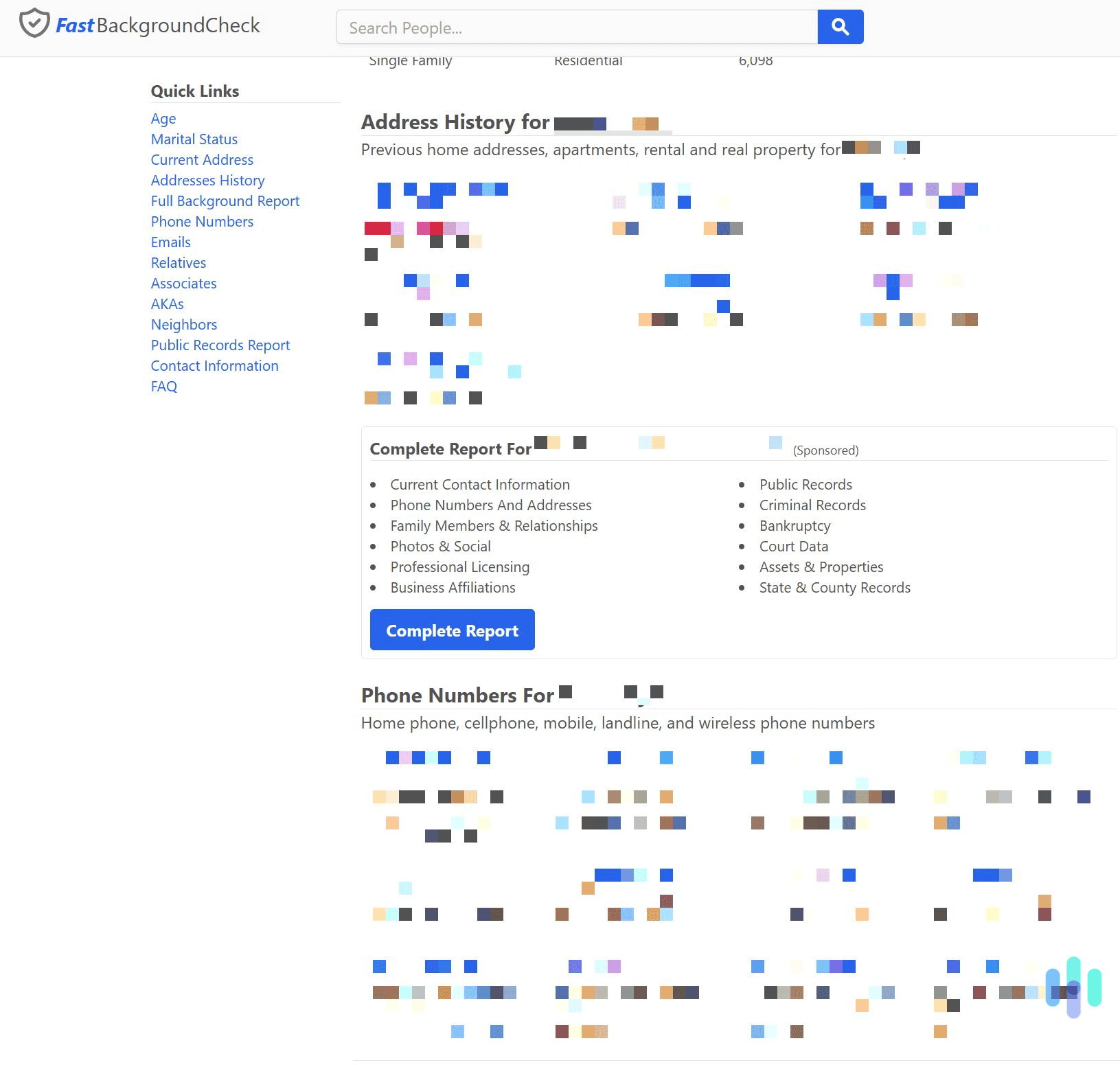
With just your name, someone could find your social media profile. If they also know your address, they could easily pinpoint which profile belongs to you if the profile mentions your location or displays social check-ins. And if your social media profile isn’t set to private, someone could go through your photos, friends list, and post history to find out which people are close to you, and where you like to spend your time.
What’s more, someone could use your name on a data broker site to find out tons of information about you. These sites aggregate personal information from public sources, and make them easily accessible to anyone (mostly for free). For example, let’s say someone types in your name and the city you live in on FastBackgroundCheck. Once they get the results, they’ll locate your profile and scan it for more private data, such as your:
- Phone number
- Email address
- Relatives
- Neighbors
- Age
- Marital status
Expert Insight: All of this information doesn’t just make it easier for someone to target you with scams or phishing messages. It would also make it easy for someone to stalk you, which could put you in danger. This is why we recommend opting out of data broker sites.
2. Target You With Phishing Attacks
Knowing your name and address makes it easy for malicious actors to target you with phishing attacks. That’s because they can personalize their messages, so that they won’t make you suspicious. Plus, as we mentioned above, hackers could use your name and home address on people search sites to gather more information on you. They can find your email address, phone number, and social media accounts. This would allow them to target you via email, calls, and direct messages.
>> Related: What Can Someone Do With Your Email Address?
If their phishing attempts are very convincing, they could trick you into interacting with a malicious link or malware-infected file. This could result in malware infecting your device, essentially compromising all data on it. It could also lead to your accounts being taken over, and even your identity being stolen.
FYI: Malicious actors could also target your friends and family with phishing attacks. They could use your name and address on data broker sites to collect more information on you. After that, they could impersonate you while speaking with your friends or family, and trick them into interacting with malware or sending them money.
3. Target You With Change-of-Address Scams
A change-of-address scam is basically mail fraud. It involves a scammer redirecting your mail to an address that’s controlled by them. This way, they could get access to various sensitive documents. This includes bank statements, tax statements, and credit card bills. A scammer could then use all of the information in those documents to commit identity theft, like cashing your checks for example.
A malicious actor probably wouldn’t be able to perform a change-of-address scam online. That’s because the U.S. Postal Service has strong security measures in place for the online process. However, if the scammer requests the change of address via mail, they might be able to get away with it since there are fewer protections in place.
>> Further Reading: What Is a Scam, and How Can You Avoid One?
4. Blame You for Any Crimes They Commit
Criminals could give out your name and home address when they’re talking with law enforcement. For example, someone could use your name and home address during booking. They’d need to also provide other information, which they could’ve gathered beforehand via data broker sites. A criminal could also create a fake driver’s license, and use your name and home address when they’re stopped for traffic violations.
The more information the criminal gathers on you using your name and home address, the more crimes they can attribute to you. And the worst part is that you’ll only know about this when you get a court summons or a fine.
5. Use Your Identity to Catfish People
Catfishing is a scam where someone sets up a fake online identity, usually on dating apps and sites. They then use it to trick people into believing they’re getting into a relationship or dating someone. The scammer ends up manipulating the victim, convincing them to do favors for them, send them money, or share personal information with them.
A scammer could use your name and address (as well as any other information they gather) when they set up their fake online profile. If they use the profile to scam people out of money, you could end up facing legal repercussions since the victim knows your identity.
>> Related: The 2026 Guide to Preventing Romance Scams
6. Target You With a Swatting Attack
Swatting is when someone submits a false report to the police. The report could mention scenarios that require an emergency response, like a stabbing, a hostage situation, an active shooter threat, a murder, or a bomb threat. The idea is to get an emergency response team (like a SWAT team) sent to a specific location.
If someone knows your home address, they could easily call 911 and claim that there’s a serious active threat at your address. This could result in a SWAT team breaking down your door. Not only is that traumatic, but it could also result in injury or even death.
Expert Insight: Swatting attacks usually target popular streamers and influencers. That’s because the attackers usually want the swatting event to take place live on camera. That said, regular people can be targeted by swatting attacks too, usually as a form of revenge.
How to Protect Your Personal Information
The tips we’ll discuss below could help you prevent someone from finding your real name or home address. They could also stop someone from using your name and address to steal more private information.
Opt Out of Data Broker Sites
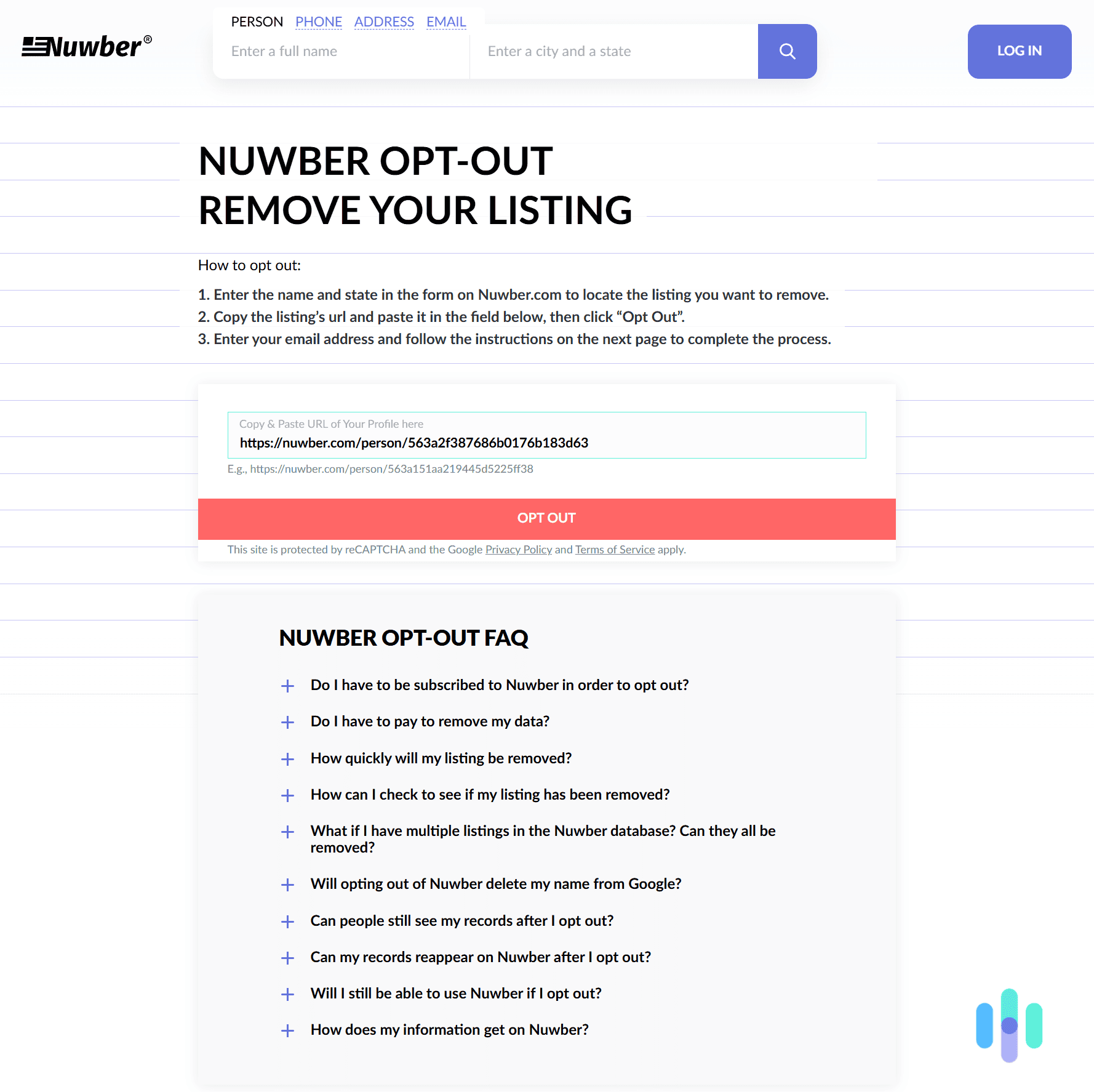
Incogni’s data removal service continually monitors 250+ people search sites for your records and sends removal requests on your behalf.

It’s actually scary how much personal information someone could access on a data broker site if they just know your name and home address. The good news is that all people search sites have an opt-out option. That basically lets you tell the site to delete your data. The only problem is that there are hundreds of data broker sites on the web. Going through each one to remove your data is definitely possible, but would take a lot of time, effort, and patience. Plus, all those sites could just republish your data in the future.
Luckily, that’s what data removal services are for. These are online platforms that automatically remove your data from data broker sites. You just have to sign up, provide the service with some personal information, and authorize it to operate on your behalf. You shouldn’t have to wait too long for it to send out opt-out requests to data broker sites. Plus, data removal services also regularly send follow-up requests to make sure that people search sites don’t republish your information.
>> Read More: The Best Data Removal Services in 2026
Don’t Share Personal Information on Social Media
Starting with your real name. You don’t actually have to use it on your social media profile — you can just use a nickname instead. Also, don’t post any information about where you live, like what your home address is, what street you live on, or what neighborhood you’re located in. We also advise against using social media check-in features, like when you visit a coffee shop, a bar, a restaurant, or a gym. Someone could use that information to pinpoint what area you live in, and also learn about your daily or weekly routines.
You should also tweak your social media settings to make your profiles as private as possible. Ideally, strangers shouldn’t be able to see your friends and relatives, check your photos and posts, or randomly message you. If you need help with this, we actually have two guides detailing how to make your Facebook and Instagram accounts more private:
Secure Your Accounts
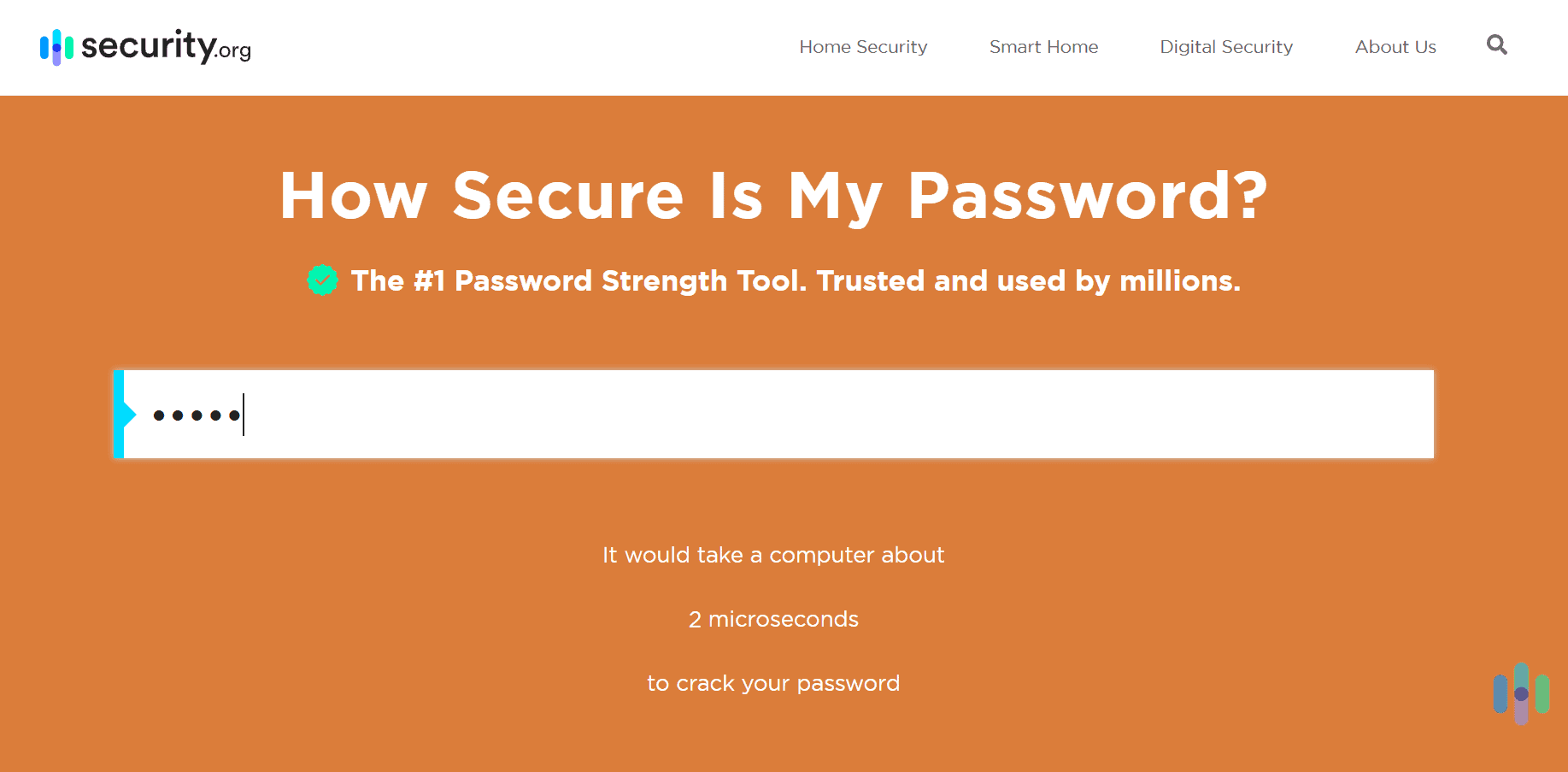
If you use weak passwords or use the same password for multiple accounts, you basically make life easier for cybercriminals. It’s just easier for them to brute-force your passwords, or even guess them. And once a hacker compromises your account, they can access it to find your full name, home address, and more. If you’re worried about this, we recommend using our password strength checker to see how strong your logins are. You should also use our password generator to create secure logins. Or, better yet, get a password manager. That’s an online app that will securely store all of your logins in an encrypted vault. Plus, it will also auto-fill your login credentials when you access an account, so you won’t need to manually enter them.
In addition, you should enable two-factor authentication (2FA) on all accounts that support it. This adds an extra step to the login process. Basically, after entering your login details, you’ll need to confirm the login attempt with a time-sensitive code that’s generated by an app or sent via a text message. With 2FA enabled, even if a hacker somehow compromises your password, they won’t be able to log into your account without having physical access to your phone.
>> Related Reading: America’s Password Habits
Use an Antivirus
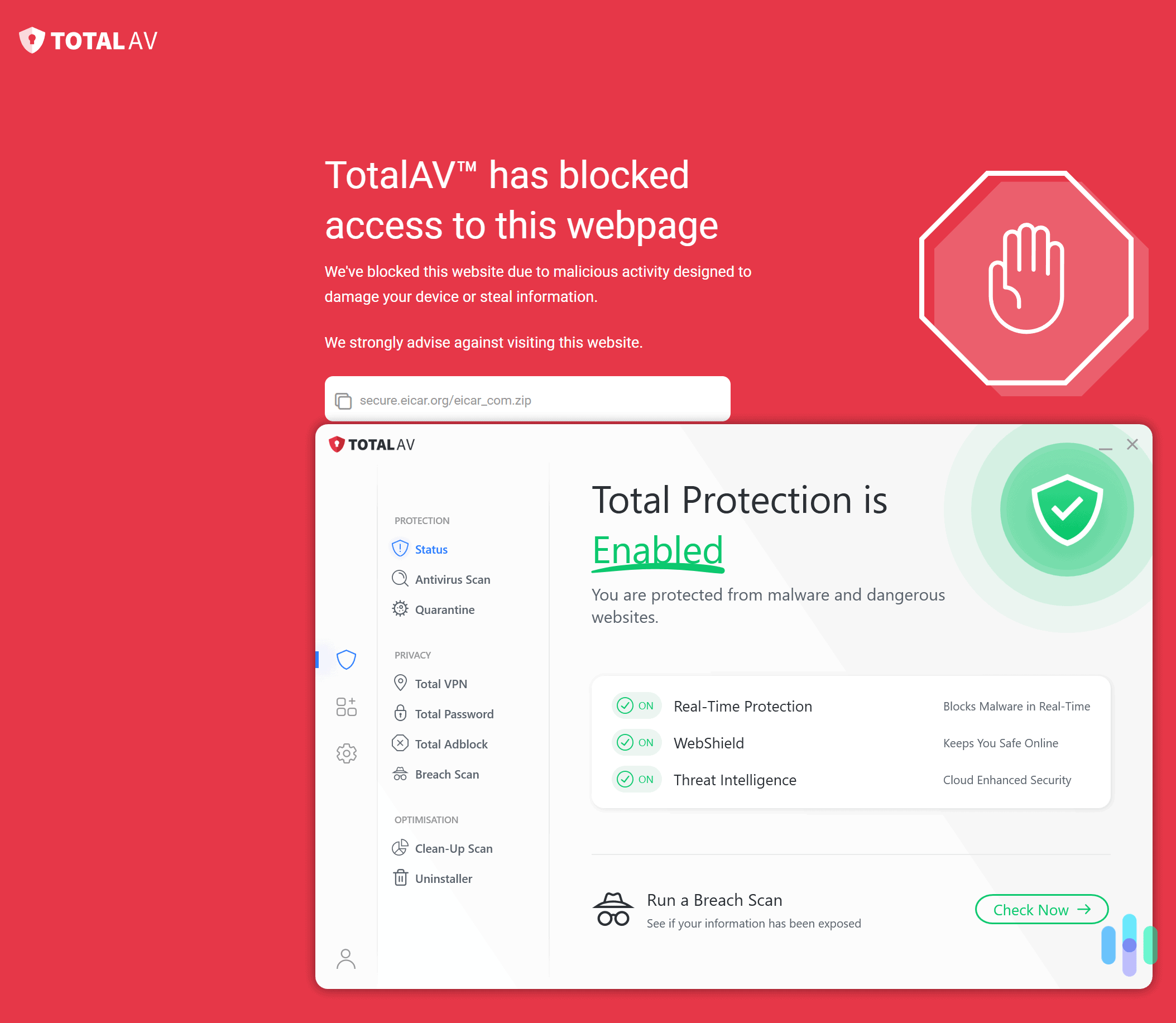
We already established that someone who knows your name and address could target you with phishing attacks. The best defense against this is to get antivirus protection. An antivirus is a security program that protects your device from online threats (like malicious links) and malware infections. Plus, antivirus programs provide real-time protection. That means they scan your system for threats 24/7, and immediately flag and quarantine any malicious files they detect.
If you’re interested in using an antivirus, we recommend checking out our list of the best antivirus programs in 2026.
Shred Sensitive Documents Before Throwing Them Away
If a stalker or scammer knows your name and home address, they might go through your trash, hoping to find sensitive documents. For example, they might look for bank statements, electricity bills, or credit card bills. If they find any documents, they could use them to learn more about you, including what your bank account number is.
That’s why we recommend getting a shredder, and using it to shred any documents you plan to throw away. Unfortunately, it’s not enough to just crumple or tear the documents. Someone who’s very determined could still use them to read your private information.
Get a Private Post Office Box
If someone knows where you live, they could go through your mail to steal sensitive documents. A private post office box means your mail will be sent there instead of your home. If this isn’t an option for you, at least secure your mailbox. For example, you could get a lockable mailbox, so that nobody can freely go through it to steal your mail.
Can Someone Use Your Name & Address to Steal Your Identity?
Just your name and address might not be enough for a malicious actor to steal your identity. But, as we mentioned above, they could still use it to impersonate you in some situations. Plus, they could use this information to steal more of your private data. Once they have enough information, it could escalate to identity theft.
What Should You Do If Someone Steals Your Identity?
If you find yourself in this unfortunate circumstance, you’ll need to go through a lot of steps to restore your identity. You’ll have to do things like filing an identity theft report with the FTC, contacting the three major credit bureaus, and alerting insurance companies and healthcare providers about this. We recommend reading our complete guide to how to deal with identity theft. It tells you all of the steps you need to take, and also includes useful links and phone numbers.
You should also consider signing up for an identity theft protection service. The goal of such a service is to protect you from identity theft. But it can also help you deal with identity theft by providing access to fraud remediation services. If you’re interested, we recommend checking out our list of the best identity theft protection services in 2026.
>> Read More: How to Protect Yourself From Identity Theft
Bottom Line
With just your name and home address, someone could find out a lot about you. For example, they could use that information on a data broker site to find your email address, phone number, and employment history. They could also do a lot of damage. For instance, they could craft more personalized phishing attacks, or impersonate you when dealing with police officers.
That’s why it’s important to take measures to protect your personal data. The list includes opting out of data broker sites, not sharing private information on social media, shredding documents before you throw them away, using a private post office box, and more.
Frequently Asked Questions
-
Can someone use my name and address to find out more about me?
Yes. For example, they could use this information on a data broker site. Once they find your profile, they’ll be able to learn what your email address and phone number is, who your relatives are, and what social media channels you’re on.
-
Can someone steal my identity if they only know my home address?
No, that wouldn’t be enough for a malicious actor to commit identity theft. But they could use your home address to find and steal more of your personal data, which they could then use to steal your identity.
-
What can someone do with my home address?
They could go to your address and go through your trash or mailbox. If they steal any documents, they could learn what your full name is, alongside other things (like what your bank account number is). They could then use this information to stalk you, target you with phishing attacks, or even involve you in a swatting incident.
-
Could someone use my name and address to steal my mail?
Yes, they could target you with a change-of-address scam. Basically, they’d redirect your mail to a new address, one that’s controlled by them. Or they could just show up to your address and go through your mailbox, stealing whatever they want.




